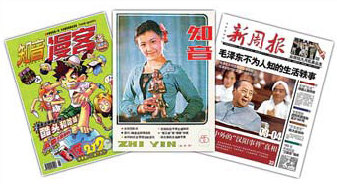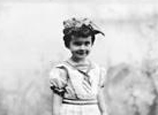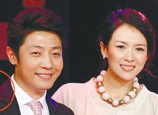
 |
| (China Daily) |
From his assignments, he discovered a spiritual emptiness among the people. Among his interviewees, there was a young man who started a religion and a teenage girl who became a nun.
"There were too many people seeking meaning in life and inevitably, some got lost," says Hu.
He was promoted as editor of the magazine in 1981. It was an interesting and special period as that was the time when Chinese society was just stepping out of the shadow of the "cultural revolution" (1966-76) and embracing the reform and opening-up policy.
With a strong nose for news, Hu sensed a gap in the publication world - the population, which had been living under a decade of political pressure, was awakening from the chaos, and trying to reconnect their broken human feelings, love and curiosity toward life.
Most magazines and newspapers then focused mainly on politics.
But increasingly, like the one where Hu led, had started to allocate space for external contributors who wrote about other topics.
The articles, mostly true stories about family relationship and love, immediately captured readers' hearts. "The letters began to pile up in my office, feedbacks about the stories kept pouring in," Hu recalls.
"Many readers shared their stories or sought advice to solve the problems they faced. I realized then that there was a huge demand for such a platform for the readers," says Hu.
He clearly remembered a shocking local news story about a young college student who cut off his finger after a girl rejected his advances.
"It's no big deal today, but during those days it was," says Hu.


















 Buildings collapse after subsidence in S China
Buildings collapse after subsidence in S China


![]()
